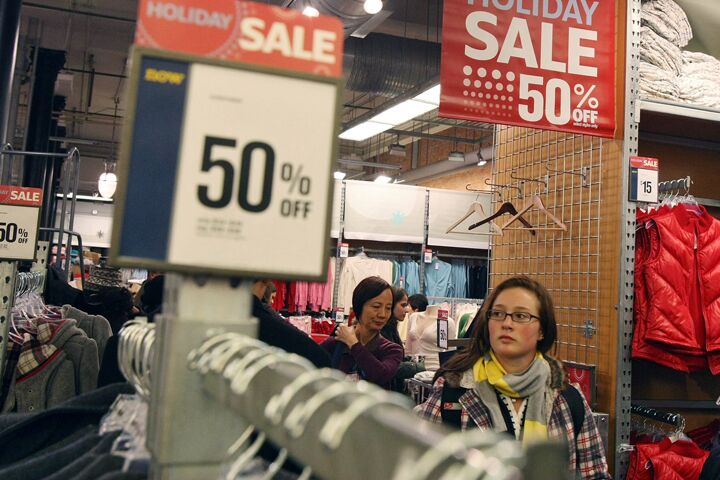
Retail Sales Slump Triggers Alarm
Shoppers are feeling a sense of “chaos” and “panic,” according to a marketing consultant to the Nation Retail Federation. Consumers are buying less, with the trend set to continue through this year.
As consumers retreat, the retail industry is being left in a state of “anarchy,” says Wendy Liebmann, chief executive of wsl Strategic Retail. This year “could see changes that may shift the retail playing field forever,” according to Reuters.
Data released by the U.S. Commerce Department Tuesday showed that seasonally adjusted retail sales fell by 0.4 percent in December. Indicative of a general trend, retail sales for all of 2007 grew at the slowest rate in five years. “Americans cannot control the big things such as oil prices, falling home values, mortgage costs and rising property taxes, so they want to control the small things,” said Liebmann. “They are watching what they spend on everything.”
The Trumpet has pointed to America’s huge amount of debt as a major cause of its economy’s growing woes. Why then, is more-prudent spending by consumers being seen as such a bad thing?
Debt is rampant within almost all Western democracies. It is not merely a problem with the system. Debt is the system. It is so bad now that the U.S., British and many other economies function only because of debt.
Look at the U.S. economy, for example. The total government debt is $9.2 trillion. Total consumer credit—a euphemism for total consumer debt, excluding mortgages—is $2.51 trillion as of November. These are mind-bogglingly high numbers. A trillion may sound only slightly more than a billion, but it is a thousand times greater.
The famous physicist Richard Feynman wrote many years ago: “There are 10^11 stars in the galaxy. That used to be a huge number. But it’s only a hundred billion. It’s less than the national deficit!” Now a hundred billion is just over 1 percent of the national debt. Feynman continued: “We used to call them astronomical numbers. Now we should call them economical numbers.”
What happens to the economy when people stop spending money they don’t have? What happens when the government and the banking system stop creating money out of thin air? What happens when “oil prices, falling home values, mortgage costs and rising property taxes,” as listed by Liebmann, mean that people can’t keep up with their interest payments?
In short, what happens when the trillions of dollars needs to be paid? The system collapses.
If people stop spending what they don’t have, then firms get less money, at least in the short term. They have to lay off workers. As a result, people have less money and feel less secure. They start to spend less; they try to pay off their debts. Firms have to respond by laying off more workers, and so the cycle of debt deflation continues.
The economy could go down through deflation. Or it could be inflation (for the different options, see “The Coming Storm”). But when spending stops, it all unravels. No wonder some call it “anarchy” when consumers start to cut back on their spending.
The current system cannot last. Debts have to be repaid at some point. Money that comes from nothing returns to nothing. It is just a matter of how soon.
